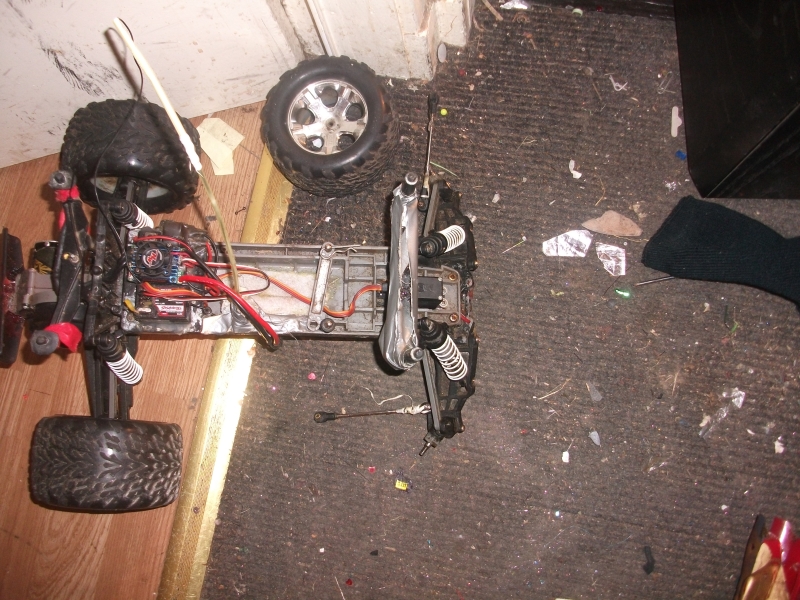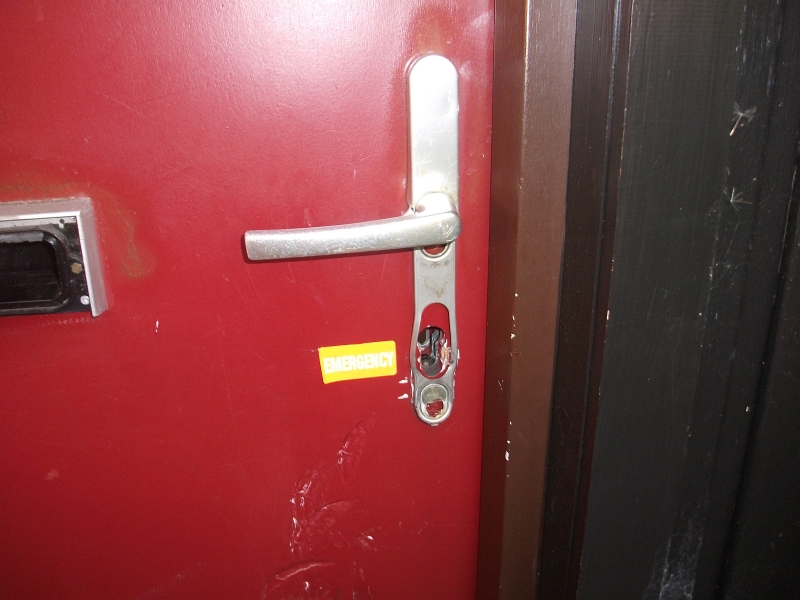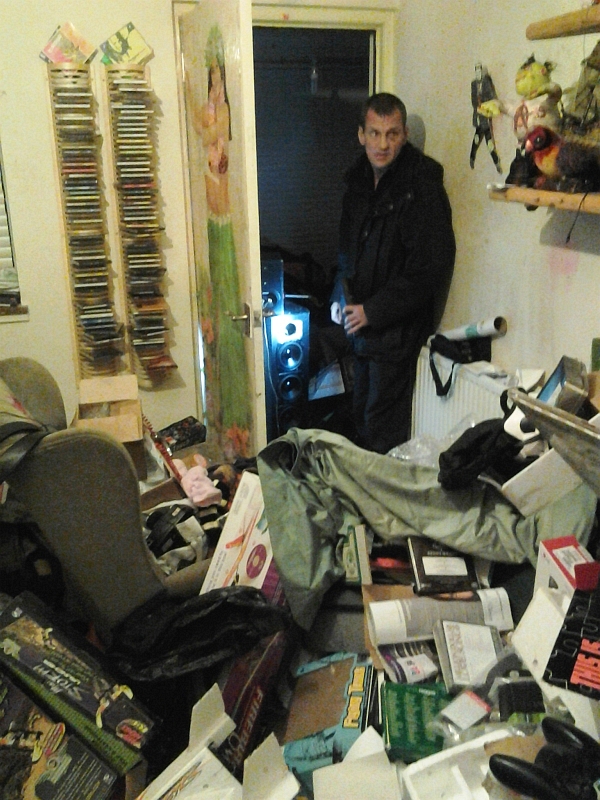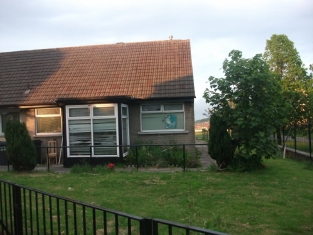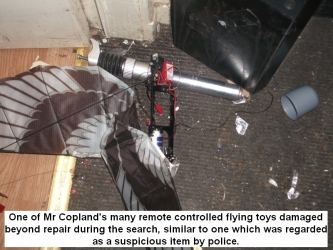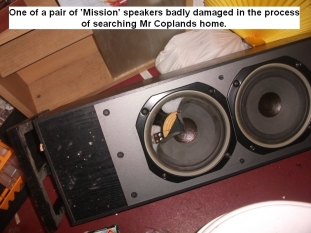Serious questions need to be answered about how Grampian Police – now Police Scotland handled an incident last June. It’s time for a reminder of what happened during the Siege of Heathryfold, and to let people know that the search for answers is far from over. By Suzanne Kelly.
The man who wasn’t there.
In June of last year, witnesses claimed a man with a gun was inside a flat in Heathryfold, Aberdeen.
This was however an empty flat – a flat far from the main road and at the end of a row of two houses accessible by a gate – you would have had to be very close to the windows to have seen anything inside, and no explanation has yet been offered as to what the witnesses were doing and how they conceivably came to the conclusion a man with a gun was inside.
Even though there are many legal reasons for people to have guns (hunting is legal, so are pellet guns), the police decided the answer was to surround the building, cordon off streets, bring in specialist teams, and lay siege to an empty property. [Those of you with hunting rifles, shooting range pistols, starter’s guns had best take note].
They entered, and finding no one home, clearly giving the gunman story the lie, the police decided to ransack the flat from top to bottom. Perhaps the gunman was hiding in the medicine chest or in the CD rack. This search seems to have happened before they finally spoke to George Copland, the property owner, on the telephone.
Seeing his flat on television surrounded by armed men, and getting a call telling him to meet the police (and not saying he could bring a friend, adviser or lawyer) George, who has a history known to the police of physical and mental health issues, was quite understandably frightened, and he declined to meet them.
He says the police were already inside his building; they say they only entered after he refused to meet them. This is one of at least half a dozen questions that need to be answered. But clearly as Copland wasn’t in his home, he couldn’t have been the hunted gunman.
The man with the feather duster gun.
Still, the police were not content with the search results (could it be they didn’t want to look silly for deploying a fair bit of back up at what must have been considerable expense for a hoax?). Days later they burst Copland’s girlfriend’s door down in a dawn raid, and took Copland into custody (whether or not this was a formal arrest is unknown to this day).
Searched, put into a boiler suit, possibly with medication withheld from him (another issue requiring clarification), he was allegedly asked to say that a feather duster he owned could have looked like a gun (the Sun newspaper ran a story on this).
the police have so far refused to release any information on the case
George’s account of seeing a doctor at the time differs with what the police said happened. It is certain they knew he had mental health issues before the siege; it is certain they didn’t let him have an adviser, friend or lawyer during the long hours of his detention.
Copland also says that before his release from custody, one of the police named one of the witnesses – an interesting move on their part, and one which like so many issues needs to be examined. Aberdeen Voice knows the identity of the person allegedly named to Copland, and it is debatable whether they would have made a credible witness.
The Right to Remain Silent – well, for Police Scotland anyway
Left with several eggs on their face, the police have so far refused to release any information on the case. A Freedom of Information request was lodged but information, as well as a reasonable request for compensation, was denied.
Copland was not up to the stress or the challenge of dealing with the FOI process; he asked for assistance. He authorised an Aberdeen Voice reporter to make enquiries of the police on his behalf. Two different signed, detailed permission letters from George bearing his address and signature were submitted to the police by email, and one original letter was delivered as well.
The police still refused to release information or contemplate compensation, and several different correspondents from the police side got involved. Some correspondence was done by email; some via the police’s online comments form. A paralegal refused to use email; and correspondence flew back and forth for months.
Finally, when Police Scotland refused the FOI request, a request for a review of how they handled the FOI request was made. This was submitted on their online form as no email address was given to make an appeal to.
The first time the request for a review was sent, it somehow was never received by the police.
It’s almost as if they had something to hide
The online form was used a second time to request the review. The request for the review advised the police to ask if they needed further information.
This second request via the online form was received, and in due course a letter came, saying a review found they had handled the FOI request perfectly.
The police said among other things that they did not have sufficient permission from George Copland for Aberdeen Voice to be given information. Did they email him, write to him or phone him to corroborate that all the submitted permission forms were genuine? No.
Does it then seem as if Police Scotland are implying that Aberdeen Voice were seeking personal data without authorisation? Yes.
After months of trying to get information and jumping through various hoops, the police refused to explain what they did and why. (It’s almost as if they had something to hide).
At that stage of the labyrinthine process, it was time to bring the entire matter to the Information Commissioner for them to consider. If the previous correspondence with the police had been confusing, the eventual Information Commissioner’s outcome was something else altogether.
It could be called Kafkaesque, but the bizarre decision, possibly unprecedented, also has a Catch 22 element.
Kafka steps in
All the correspondence was summarised, and the important items were sent to the Information Commissioner’s office – this included the request for the review and the letter giving the review outcome. So far, so good.
On 18 April Aberdeen Voice’s reporter received a letter in the post saying the Information Commissioner would not look into this case. The reason? The request sent to the police was not specific enough.
The police had the request to review how they handled this Freedom of Information request. They were told to revert if they needed more specifics. They didn’t. They went ahead and held a review upholding their actions in withholding the facts from George Copland and Aberdeen Voice.
that dialogue aspect of FOI requests doesn’t seem to exist now
Now, months later, someone has decided that the request for the review which was held wasn’t quite good enough. Kafka might have come up with this.
Information Commissioner – has the rulebook changed?
When Aberdeen Voice was involved in a FOI commission investigation into property dealings between Stewart Milne and Aberdeen City Council, we were informed every step of the way as to what the council was claiming and what they were telling the information commissioner’s office.
AV was able to counter points successfully and in the end the City had to release information.
Somehow that dialogue aspect of FOI requests doesn’t seem to exist now. Any first year law student would be making good points as to how holding a review pretty much gives validation to the request for a review.
AV had no such opportunity to put up the case for law, logic and common sense. We will be asking how often this defence is used when refusing to investigate FOI matters. It certainly seems the rules have changed.
Carte Blanche
The police are no strangers to requests for information which wind up going to the Information Commissioner. However, the police do not have to release any info which may make the public lose confidence in them.
This is basically giving the police carte blanche to do as they please with complete immunity and no fear of accountability getting in their way. With public confidence in the police already low, surely this aspect of how the Information Commissioner operates must be reviewed and changed.
It would be interesting to know how many times this public confidence exemption has been used by the police in past FOI appeals to the Commissioner.
More questions likely to remain unanswered.
Whose idea was it to claim the request for a review was invalid – the Police, the Information Commissioner’s office – or both?
Why did they hold a review if they didn’t need to?
Why did it take until 15 April for anyone to claim that the review which was held didn’t need to be held?
If the request was not valid, why did Police Scotland hold the review in the first place?
Since the request for review, as submitted online (no documents could be attached,) offered to supply further details for the review request if needed, why didn’t anyone point out that there wasn’t sufficient grounds given for a review?
How could the police possibly claim they didn’t have enough valid permission to release the requested information at the review stage when they could have had clarification at any time?
Does holding a review validate the request for a review?
Was the way the Siege of Heathryfold handled reasonable? Was the way George Copland was treated legal, fair and suitable for someone with known health issues?
To come back months after the review was held, and claim that the request for the review was invalid makes police Scotland appear either to be disingenuous, or disorganised. Why did they hold a review if they didn’t need to? It’s almost as if someone higher up got wind of this, and decided to try and derail it.
Surely not.
It ain’t over til it’s over.
Perhaps the police involved in this incident may not want to breathe that sigh of relief just yet. Information will indeed still be sought by various other avenues.
Oh, and if the police are interested, the Police Complaints Commission has been formally asked to look into this entire incident as well. Time will tell what comes of that.
More info – previous Voice articles.
seige-a-hoax-but-the-damage-all-too-real/
siege-of-heathryfold-and-george-copland-arrest-latest/
benefit-concert-for-heathryfold-siege-man/
siege-heathryfold-update/
siege-heathryfold-devastation-no-compensation/
- Comments enabled – see comments box below. Note, all comments will be moderated.


